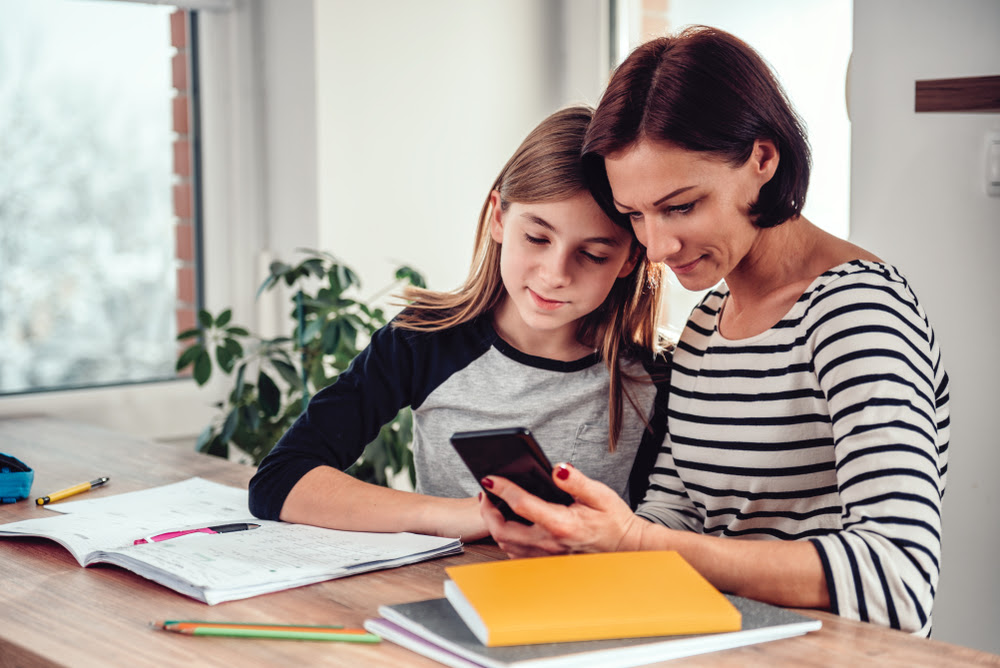Many parents with pre-teens will inevitably find themselves explaining the mechanics of a period when met with a “what’s that?” and a curious finger pointed towards a feminine hygiene product. Regardless of how common the situation, parents often succumb to feelings of nervousness or hesitancy when the time arrives to talk about menstruation. Periods may seem a bit complicated to explain to your child at first, especially those little ones who aren’t menstruating themselves. Parents may also flop in the face of seemingly age-inappropriate questions if their parents failed to initiate a menstruation conversation in their child, leaving next-generation moms and dads unsure how to broach the subject with their child.
Regardless of how common the situation, parents often succumb to feelings of nervousness or hesitancy when the time arrives to talk about menstruation. Periods may seem a bit complicated to explain to your child at first, especially those little ones who aren’t menstruating themselves. Parents may also flop in the face of seemingly age-inappropriate questions if their parents failed to initiate a menstruation conversation in their child, leaving next-generation moms and dads unsure how to broach the subject with their child.
Parents in this situation may inadvertently contribute to their child’s’ period shame. When parents shy away at the mention of a period or tip-toe around posed questions, teenage girls may internalize their parent’s embarrassment. Adding shame and discomfort on top of confusion about what is happening to their changing bodies has the potential to negatively affect your child’s mental health.
The shame surrounding periods have caused some pre-teens to hide their first period from parents altogether. Fear that something could be wrong with them, coupled with the idea that their period is taboo, could instill toxic beliefs that periods are inherently gross or shame-worthy.
Many parents desire to be there for their children when the big “firsts” come around, even if those moments are tough to talk about initially. By considering just a few suggestions, you can guarantee you’ll be fully prepared for a body-positive period conversation with your children.
Questions to be prepared for
When will I get my period? What is a period? How do I deal with it when it gets here? What if it happens at school? Does it hurt? All these questions and more are excellent points to consider for parents who’ll want to do some research before talking to their child about their first period.
While working through these questions before discussing your child, make sure you’re up-to-date and well-versed in period facts. Don’t automatically assume that you know exactly what is going on either. If you spent your formative years in a period-shaming household, you might learn a thing or two in the process.
Normalize the period
Turning away from the idea that periods are taboo in favor of embracing the idea that it’s a perfectly normal human function gives parents the chance to save their children from any period shame right off the bat. Teenage children are often prone to embarrassment, especially during conversations concerning their bodily functions, but you will be saving them strife in the long run by speaking directly and without hesitation.
Be sure to use the correct terminology when explaining a period. Doing so will not only educate your impressional preteen, but this approach will also eradicate misconceptions that initiating conversations about the body or puberty are punishable offenses. Nicknames designed to cover up body parts’ actual names add fuel to the raging shame fire, making period-related conversations an insurmountable obstacle for nervous parents. That said, be sure to check your feelings surrounding this subject matter in advance to foster a productive discussion.
Of course, keep discussions age-appropriate for your kids as you see fit. Keep in mind, though, that children aren’t naturally going to be embarrassed about their bodies. That shame is learned, usually from other adults. With the Gen-X parents’ tendency to pass on their period-shame-ridden behaviors in mind, keep open lines of communication with your children as they mature. They’ll thank you later.
Explore menstrual products together
Many pre-teens are worried about how to manage their period when it begins. A potentially fun way to teach your child about period products is to go shopping for first-period products with them. This way, you’ll be able to explain pads and tampons by showing them the options available, allowing them to pick out their products for themselves.
If the prospect of shopping for menstrual products in public overwhelms your anxious child or preteen, take a similar approach at home. Ensure your child is aware of where to find menstrual products at home, and leave the door open to discuss their uses whenever your child is ready.
Conclusion
A first period can be an emotional and confusing time for both parents and pre-teens, but being prepared for a body-positive period conversation can help your child feel more secure about what is going on. By discussing periods with your child confidently (and shame-free), you’ll be able to remove the taboo surrounding periods in your own home and create a safe space for your children to come and talk with you in the future.